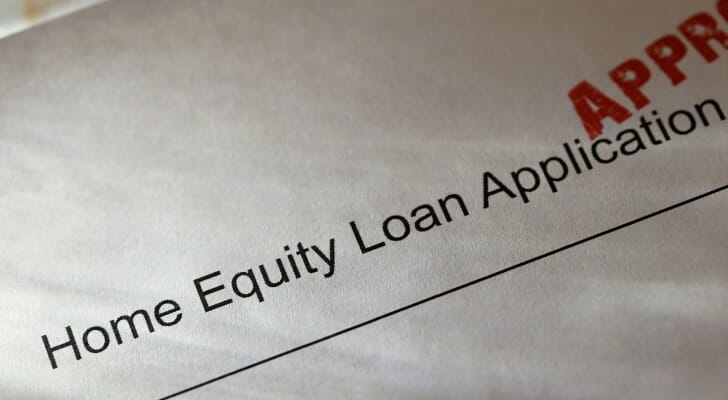Owning a home can yield valuable benefits, including the opportunity to accumulate equity in the property. Equity is the difference between what you owe on the home and its fair market value. There are different ways you can tap into this equity, including taking out a second mortgage. But is there a difference between a second mortgage and a home equity loan? If you’re considering making use of the equity you’ve built up in your home, consider meeting with a financial advisor about whether it’s the right move for you.
What Is a Second Mortgage?
A second mortgage is any mortgage loan that’s subordinate to a first mortgage. Typically, a first mortgage is a loan that’s used to purchase the home. First mortgages are usually larger than second mortgages.
The home serves as collateral for a second mortgage. Like a first mortgage, the loan must be repaid over time with interest. So if you have both a first and second mortgage, you’ll have two monthly mortgage payments.
If you default on either mortgage loan, the first mortgage lender takes priority over the second mortgage lender for repayment. This means that if the home falls into foreclosure, the first lender would get paid before the second, and it’s possible the second might receive little or even nothing at all.
Second mortgages tend to have higher interest rates than first mortgages for that reason. A borrower who now has two mortgage payments to make instead of one presents a greater risk for the lender. So they compensate by charging more in interest to offset the possibility of the borrower defaulting.
What Is a Home Equity Loan?
A home equity loan is a loan that allows you to borrow against your home’s value. In simpler terms, it’s a second mortgage.
When you take out a home equity loan, you’re withdrawing equity value from the home. Typically, lenders allow you to borrow 80% of the home’s value, less what you owe on the mortgage. Some lenders may increase this to 85%.
Here’s an example of how home equity loans work:
Say your home is worth $575,000 and you owe $350,000. The most you’d be able to borrow against the equity using the 80% rule is $110,000.
Here’s what the math looks like:
$575,000 x .80 = $460,000
$460,000 – $350,000 = $110,000
The proceeds from a home equity loan are paid out to you in a lump sum and you can use it however you like. Common uses for home equity loans include:
- Home improvements or repairs
- Debt consolidation
- Large purchases
- Wedding expenses
- Vacation expenses
- Medical expenses
- Education expenses
- Business expenses
The loan has to be paid back with interest, and depending on the loan terms, repayment may last anywhere from five to 30 years.
Second Mortgage vs. Home Equity Loan

When you’re talking about second mortgages vs. home equity loans, you’re really talking about the same thing. A home equity loan is a second mortgage on a home that’s secured by the underlying property. So there’s no “which is better?” question to answer as they’re referencing the same thing.
The better question to ask is, “Should I get a home equity loan?” There are some pros and cons associated with having a second mortgage on your home.
On the pro side, the main benefit of a second mortgage is being able to access your home’s equity. A home equity loan offers flexibility, in that you can use the money for just about anything. So you could overhaul your kitchen, for example, if you want to make some upgrades that will improve your home’s value. Or you could use the money to consolidate and pay off high-interest credit card debt.
Home equity loan interest rates are often much lower than credit card interest rates or even personal loan rates for borrowers who have good credit scores. Opting for the shortest loan term possible can help you pay off a home equity loan faster, though keep in mind this will mean a larger monthly payment.
The interest on a home equity loan may be tax-deductible if you’re using the proceeds to buy, build or substantially improve the property that secures it. So again, if you’re renovating your kitchen to increase the home’s value or replacing your HVAC system, you could write off the interest. The IRS does have strict rules about this so you may want to talk to your tax professional or financial advisor about what is and isn’t allowed.
The biggest drawback associated with having a home equity loan as a second mortgage is that it’s secured by the home. This means if you run into trouble making payments on the loan, you could be at greater risk for default and eventually, foreclosure. Not only would you lose the home, but you’d be out of all of the money you’ve invested into it over the years.
Home Equity Loan vs. HELOC
A home equity line of credit or HELOC is another type of second mortgage loan. Like a home equity loan, it’s secured by the property, but there are some differences in how the two work.
A HELOC is a line of credit that you can draw against as needed for a set period of time, typically up to 10 years. After the draw period is over, you’d enter the repayment period, which may last as long as 20 years. At this stage, you’d pay back the amounts you drew from the line of credit with interest.
HELOCs can have variable interest rates, while home equity loans more often have fixed interest rates. The amount you can borrow may be higher compared to a home equity loan. For example, lenders may use a 90% equity limit in determining HELOC amounts. Both home equity loans and HELOCs can have upfront fees.
Which Is Better? Home Equity Loan vs. HELOC
The answer depends on what you need to tap into your equity for. For example, say you want to make some major home improvements, but you aren’t exactly sure how much money you’ll need. You might choose a HELOC since you’ll have a flexible line of credit you can use as needed. The HELOC has a variable rate, but you’re hoping rates will stay low over time.
On the other hand, say you know you need exactly $50,000 to fund your home updates. You might prefer a home equity loan with a fixed interest rate instead, as this can offer more predictability in terms of payments and overall cost. The downside here is that if you go over $50,000 for your project, you may need to use another loan or a credit card to finish the project.
Using a home equity loan calculator or HELOC calculator can help you estimate how much you might be able to borrow and what kind of rates you’ll likely qualify for. Keep in mind that as with first mortgages, qualification for a second mortgage can depend on your credit scores, income and debt-to-income (DTI) ratio.
Bottom Line

Whether you call it a second mortgage or a home equity loan, it means the same thing. Withdrawing from your equity can put cash in your hand when you need it. But consider what the cost will be (be mindful of both interest rates and repayment terms) and how having two mortgages can affect your monthly budget.
Mortgage Planning Tips
- Consider talking to a financial advisor about the pros and cons of taking out a second mortgage and whether it might be right for you. Finding a financial advisor doesn’t have to be hard. SmartAsset’s free tool matches you with up to three vetted financial advisors who serve your area, and you can have free introductory calls with your advisor matches to decide which one you feel is right for you. If you’re ready to find an advisor who can help you achieve your financial goals, get started now.
- Your mortgage debt can play a significant role in the way you plan retirement. That’s why one of your most useful resources is a free mortgage calculator.
- Mortgage rates are more volatile than they have been in a long time. Check out SmartAsset’s mortgage rates table to get a better idea of what the market looks like right now.
- Use our no-cost calculator to determine how much house you can afford.
Photo credit: ©iStock.com/anyaberkut, ©iStock.com/phototechno, ©iStock.com/Kameleon007
